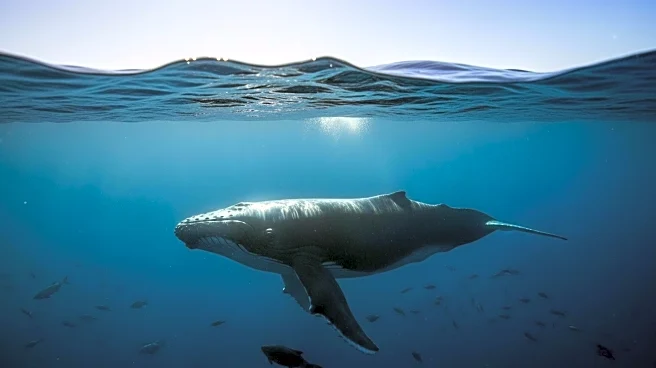What is the story about?
What's Happening?
The Biodiversity Beyond National Jurisdiction (BBNJ) high seas treaty has reached the required 60 state ratifications, allowing it to become international law on January 17, 2026. The treaty, adopted by the United Nations in June 2023, establishes a global legal framework for creating marine protected areas in the high seas, which cover two-thirds of the world's oceans. The treaty aims to address overexploitation, pollution, and biodiversity loss in these largely ungoverned areas, with a goal of protecting at least 30% of the global ocean by 2030.
Why It's Important?
The BBNJ treaty represents a significant step forward in global ocean governance, providing a legal mechanism to protect marine biodiversity and address environmental challenges. The treaty's implementation could lead to the preservation of critical marine ecosystems and the sustainable use of ocean resources. This development is crucial for combating climate change and ensuring the health of the planet's oceans, which are vital for global biodiversity and human livelihoods.
What's Next?
As the treaty comes into force, countries will need to collaborate on establishing and managing marine protected areas in the high seas. This will involve international cooperation and coordination to ensure effective implementation and enforcement. The treaty's success will depend on the commitment of signatory countries to uphold its provisions and work towards the shared goal of ocean conservation.
Beyond the Headlines
The BBNJ treaty highlights the importance of international collaboration in addressing global environmental challenges. It also underscores the need for equitable sharing of marine resources and the protection of marine genetic resources. The treaty's implementation could set a precedent for future international agreements on environmental protection and resource management.















